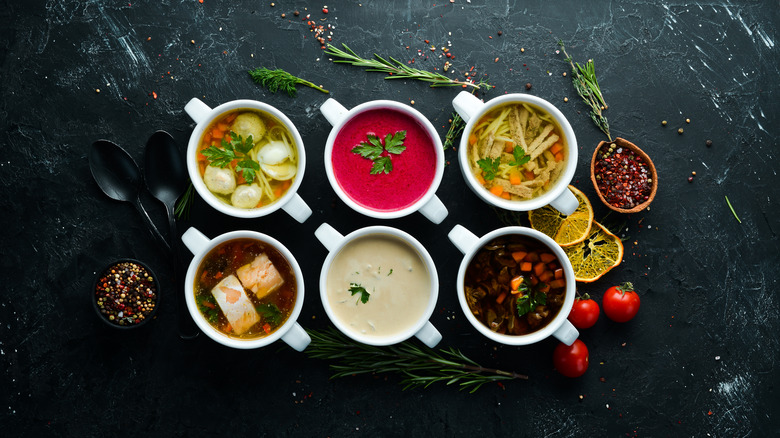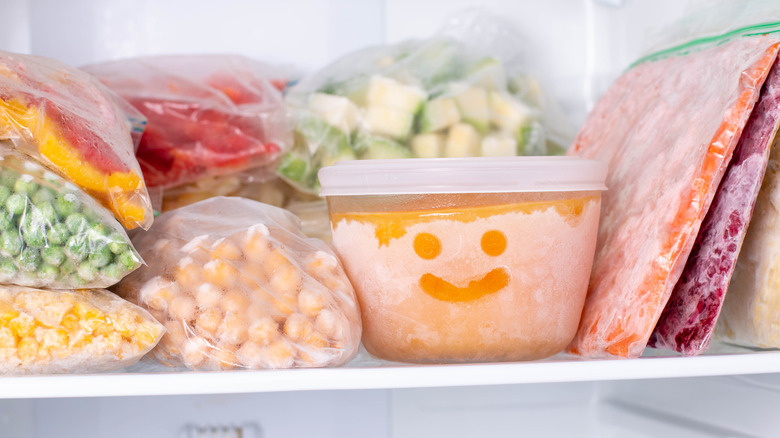What Happens If You Freeze Cream-Based Soups
A good soup is one that warms you from the inside out, keeps your spoon glued to your hand, and tastes just as delicious out of a cup or thermos as it does down out of a bowl. Best of all, soups are simple to reheat in the microwave or on the stove and an easy complement to that sandwich that feels a bit dry or that piece of toast that looks a bit lonely.
The convenience of soup is definitely nice, but unfortunately many of the most beloved soups are dairy-based and freezing these kinds of soups for later can sometimes develop an off-putting texture after they're reheated. According to MyRecipes, dairy-based soups tend to separate when freezing, resulting in a grainy textured soup with perhaps even a film of fat on the top.
Kitchn explains that cream-based soups like chowders and bisques suffer from this heavily, but even soups that substitute for nondairy cream and milk alternatives like Thai curry soups (which use coconut milk) can still sometimes result in a weirdly textured mess.
What's happening? As the temperature is brought down suddenly, the fat from the cream products is separating from the soup. Fats will separate from the liquids, making it difficult to incorporate back into the soup later on and destroying that creamy texture that made the cream-based soup so delicious in the first place.
How to freeze cream-based soups
Thankfully, there are a couple things you can try to make sure you're avoiding that grainy texture in your frozen cream-based soups. One thing to do is to move slowly when freezing soup. As Foods Guy explains, the rapid change in temperature is what accelerates the fat-separation process, so it's in your best interest to cool your soups down as much as possible before loading them up into the freezer. Remember also to freeze soup in portion-sized batches so you don't have to refreeze the soup again.
If you're planning a little further ahead, Kitchn recommends adding any dairy products to your soup a bit before serving; that is, keep the dairy out of your cream-based soups if you plan to freeze them for later use. Soups can be flexible for their chefs, and making the soup minus the dairy will make it easier to freeze — adding the dairy products a little before serving time will not affect the final soup's quality.
If the soup has already been made with cream, then there are still a couple things you can try to reconstitute your soup when reheating. Per the AnswerLine at Iowa State University Extension, you can whisk in a slurry made out of water and either arrowroot powder or potato powder. You can also try using an immersion blender; the action will help to incorporate the fats back into the soup.

